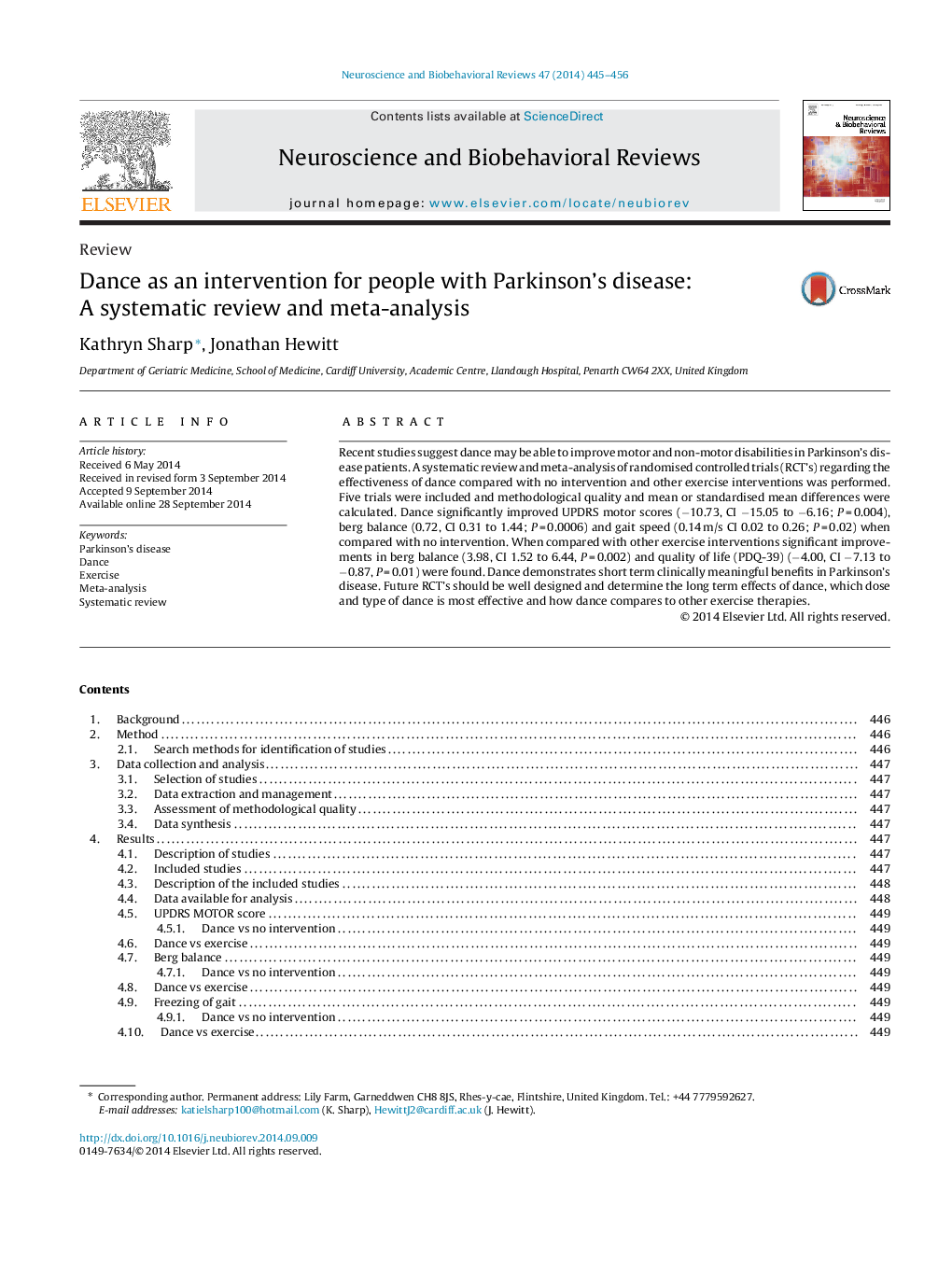| Article ID | Journal | Published Year | Pages | File Type |
|---|---|---|---|---|
| 7303849 | Neuroscience & Biobehavioral Reviews | 2014 | 12 Pages |
Abstract
Recent studies suggest dance may be able to improve motor and non-motor disabilities in Parkinson's disease patients. A systematic review and meta-analysis of randomised controlled trials (RCT's) regarding the effectiveness of dance compared with no intervention and other exercise interventions was performed. Five trials were included and methodological quality and mean or standardised mean differences were calculated. Dance significantly improved UPDRS motor scores (â10.73, CI â15.05 to â6.16; PÂ =Â 0.004), berg balance (0.72, CI 0.31 to 1.44; PÂ =Â 0.0006) and gait speed (0.14Â m/s CI 0.02 to 0.26; PÂ =Â 0.02) when compared with no intervention. When compared with other exercise interventions significant improvements in berg balance (3.98, CI 1.52 to 6.44, PÂ =Â 0.002) and quality of life (PDQ-39) (â4.00, CI â7.13 to â0.87, PÂ =Â 0.01) were found. Dance demonstrates short term clinically meaningful benefits in Parkinson's disease. Future RCT's should be well designed and determine the long term effects of dance, which dose and type of dance is most effective and how dance compares to other exercise therapies.
Related Topics
Life Sciences
Neuroscience
Behavioral Neuroscience
Authors
Kathryn Sharp, Jonathan Hewitt,
